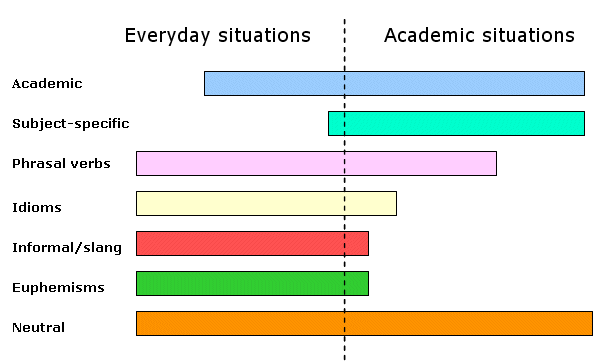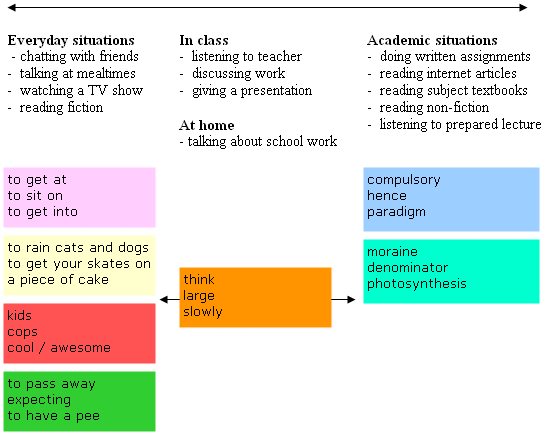Types of vocabulary
The graphic below shows the different types of English vocabulary and the situations in which they are likely to be found. The vocabulary types are shown vertically down the left and the situations in which they are used are shown horizontally along the bottom:


The words in the coloured boxes above are examples of those that would normally be found only in the situation under which they are placed.
For example, it would be unusual to meet in everyday situations the academic word hence (meaning therefore or so) or the subject-specific word denominator (meaning the number below the line in a fraction).
Conversely, it would be surprising to read the informal word cops (meaning police ) or the idiom a piece of cake (meaning easy ) in an academic text. Neutral words (orange box) are of course found in all types of context.
Important: Phrasal verbs, idioms, informal (colloquial) language and euphemisms are useful for learners who want to understand everyday spoken English. However, I do not recommend that ESL students spend a lot of time trying to learn these vocabulary types. Much better is to learn neutral and general academic vocabulary, together with the key subject-specific words.